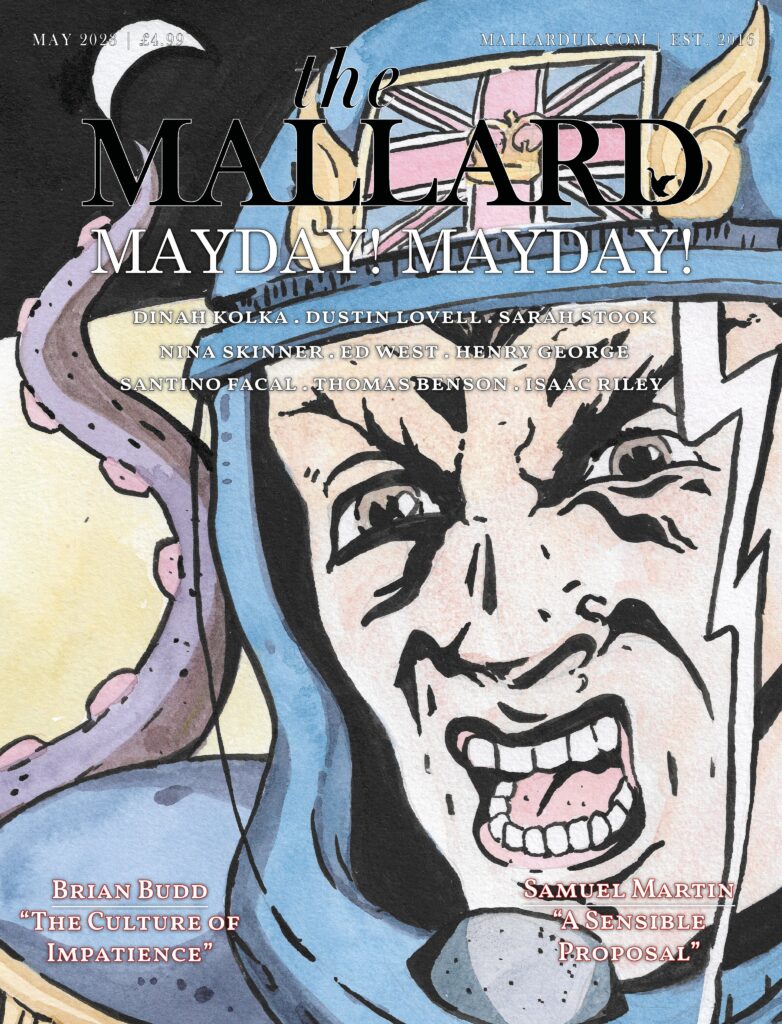Driving may well be the biggest psy-op in modern history. The car has often been depicted as the symbol of freedom, the ability to go wherever one pleases – to emancipate oneself from the circumstances they find themselves in, and to strike up a new existence elsewhere. There’s a reason they talk of the ‘open highway’. Maybe in America this imagery resonates. After all, America has the size necessary for road trips to take you to genuinely isolated places. But America is America, and Britain is Britain. If you woke up at a random place on the British Isles, you could walk in any direction and find a marker of civilisation and follow it to safety before you were seriously close to death.
This fact is part of Britain’s charm, we really are the national equivalent of The Shire. A place where just the natural landscape lends itself to safety. Our island status makes it easy to defend, and our size allows us to grow, but not isolate ourselves from one another. Considering this, there really is no escape from civilisation in Britain. This may well be why exploration and adventure are such a large part of our culture: the only way to experience these things was to leave the country.
These facts make cars not so much a freedom, but a restriction. There is no ‘open road’ in Britain, just congested highways and country lanes that were fit for horses and carriages, not Land Rovers and BMWs. Driving in modern Britain means going from your box apartment to your box office, all facilitated by your box car. What do you get for the privilege of this freedom? More paperwork, bills, and another thing to look after. These are just the personal costs, the social costs are much greater. Huge swathes of land have to be taken up to facilitate cars. Roads are just the beginning, parking, driveways, motorways and car-related services such as petrol stations and garages all take up space that could otherwise be allocated for residential use. Cities such as Rome enchant those who visit because they were structured around the human and not the car. The streets of Rome have natural, organic arcs to them which obscure the street ahead. Cars don’t do well with too many turns, and so roads become long stretches that give the eyes nothing to feast upon but the gruelling monotonous journey ahead, often accompanied by ‘humorous’ bumper stickers or, God forbid, billboard emblazoned with advertisements – turning your commute into an advertisement break between your diminishing private life, and your gruelling work life.
So what should replace the roads? Surely we still need all of the creature comforts of the modern world, and if we don’t have roads between towns or within them, we can’t have any trade. First and foremost, people will not simply sit in their homes and starve because the A419 has been ripped up and they cannot reach a Tesco. Where there’s mouths to feed, there’s money to be made, and a new wave of farm-to-table markets would be incentivised to emerge locally. Now that walking is the main way of navigating towns and cities, commerce has to spread out to accommodate. No longer will there be massive central hubs of consumption, but small decentralised centres catering to the bespoke needs of communities on the most elemental level. For transport between these centres, the newfound cash not spent on road maintenance can be used to build trams to move people between these different centres allowing cross-pollination of consumers without the homogenisation of products that comes with shoving those products in vans and moving them across towns.
Of course, there are those goods which simply cannot be manufactured locally, and certain goods like fish are quite obviously not easy to come by if you’re not on the coast. To this end, a massive expansion and upgrade to the railways is needed. Expansion to offset the now-defunct road freight industry, and upgrades to ensure timely delivery of goods. This would mean moving away from much of the Victorian-era railway, but returning In full force to the Victorian-era spirit of industrialisation and progress. Rail freight is often cheaper per-mile than road freight, and allows for quick loading and unloading of containers, rather than manual loading and unloading from the back of lorries.
In order for rail to dominate the British landscape, the failures of the British state can no longer be tolerated. It shouldn’t take a decade to open a railway for public consultation, only to downscale it before any serious construction has taken place. Instead, a reactive and dynamic centralised infrastructure is required that clears out the dead weight who would stand in the way of a new vision of Britain – one in which the countryside is reclaimed from the concrete mess of roads, and the rewilded landscape tears past the window of your maglev as you travel from Plymouth to Edinburgh in four hours, rather than ten.
However, the removal of roads doesn’t require the end of private travel. Instead, we can simply take paramotors to the skies and fly to any number of open fields. Paramotors are statistically safer than cars, and can go at around 60mph. Private travel in Neo-Britain would mean the removal of box cars to open skies, overlooking a renewed landscape. For those who prefer to remain grounded, the reclaimed land doesn’t need to be privatised, it can be kept public and traversed by anyone who rents a quad bike and decides to drive through the wilderness to visit their friend a town over, or anyone who just wants to to ramp around the countryside for the day.
Roads are an ugly blight on Britain, they turn a once green and beautiful isle into a grey, dead landmass full of grey, dead people. They facilitate a society built around machinery and not around the character of the people who compose it. There are those who want to end the growth of technology where it stands. These people will lose out to those who wield the weapon of tech. There are also those who wish to simply allow tech to override their humanity. Indeed, we see this in the fact most of our cultural events (including Project 22) are experienced through a screen. Instead, I propose a third way: that technology is a tool in the hands of those who wield it, and through a great strength of will, we can adapt it to the world we live in. We ought not to see technology as an escape from nature, nor as a means to become stewards of nature. We are a part of nature, and must shape ourselves and our societies to work in tandem with it. To that end, we must rip up the roads.





